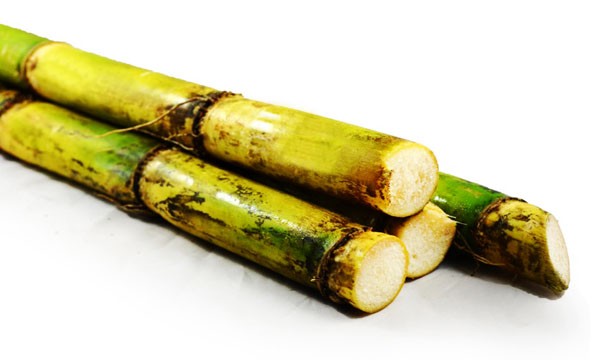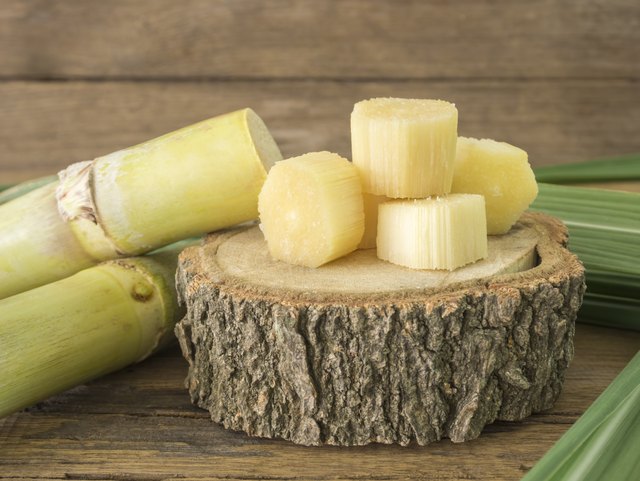The Rich History and Origins of Sugar and Cane Around the World
The Rich History and Origins of Sugar and Cane Around the World
Blog Article
Why Cane Sugar Handling Chemicals Are Critical for Modern Sugar Refining
The role of cane sugar handling chemicals in modern-day sugar refining can not be overstated, as they are essential to improving both the performance of extraction and the general top quality of the final item. Representatives such as phosphoric acid and specific flocculants are utilized to remove contaminations, resulting in sugar that not just fulfills customer assumptions yet also adheres to industry criteria.
Role of Handling Chemicals
The efficacy of walking stick sugar handling pivots substantially on the strategic application of handling chemicals. These chemicals play a crucial duty in improving the effectiveness and quality of sugar removal and refining. From the first stages of juice extraction to the last filtration steps, processing chemicals promote numerous essential procedures.
In the extraction stage, chemicals such as phosphoric acid and calcium hydroxide are used to enhance the information process, helping to remove contaminations and put on hold solids from the walking stick juice. This not just improves the yield but additionally makes certain the quality of the end product. Additionally, agents like flocculants aid in the fast settling of impurities, therefore streamlining the total procedure.
As the processing breakthroughs, chemicals are used in decolorization and crystallization phases. Triggered carbon and ion exchange resins offer to eliminate shade and odor, making certain that the refined sugar fulfills consumer quality criteria. Ultimately, the role of handling chemicals extends past functional effectiveness; they significantly affect the sensory attributes of the final item, contributing to market competitiveness. Thus, the careful option and application of these chemicals are essential for achieving optimal results in walking stick sugar handling.
Secret Kinds Of Chemicals
Walking cane sugar processing counts on a range of crucial chemicals that facilitate each stage of production. These chemicals play crucial roles in clarifying, bleaching, and purifying the sugar removed from cane.
One primary classification of chemicals includes flocculants, such as polyacrylamide, which help in the explanation procedure by promoting the gathering and settling of contaminations. In addition, calcium hydroxide is frequently utilized to neutralize acidity and assist in the removal of non-sugar elements.
Lightening agents, such as triggered carbon and sulfur dioxide, are made use of to decolorize the syrup, leading to a more clear final product. These chemicals help eliminate shade substances that might affect the sugar's appearance and marketability.
Additionally, phosphoric acid functions as a pH regulator during the processing phases, ensuring optimum problems for the chemical activities associated with sugar extraction and filtration.
Other crucial agents consist of edta (ethylenediaminetetraacetic acid), which chelates steel ions that might catalyze unwanted responses, and sodium hydroxide, which aids in pH control throughout the refining procedure. Collectively, these chemicals enhance performance and make certain a premium walking stick sugar product.
Advantages for Sugar Quality
Frequently forgotten, making use of specific handling chemicals considerably enhances the total top quality of cane sugar. These chemicals play an essential function in refining processes, making certain that the last product satisfies strict sector standards for pureness and preference.

Additionally, processing chemicals aid in achieving a regular granulation and structure, which are essential for customer approval. By managing the condensation process, these chemicals ensure that the sugar crystals form consistently, leading to a much more attractive item that dissolves well in various applications.
Additionally, making use of these chemicals can improve the life span of walking cane sugar by lessening dampness absorption and microbial development. In general, the calculated application of processing chemicals is necessary for providing top quality cane sugar that fulfills consumer assumptions and market demands.
Ecological Impact Factors To Consider

Furthermore, the energy-intensive nature of sugar refining, intensified by chemical use, often leads to enhanced carbon emissions. This adds to climate modification and raises concerns regarding the sustainability of current refining techniques. Furthermore, the sourcing of these chemicals may include methods that endanger biodiversity, such as monoculture farming, which minimizes the strength of farming ecosystems.

To reduce these impacts, sugar refiners are increasingly exploring lasting options and adopting ideal webpage techniques that lessen chemical usage. Implementing strenuous environmental management systems can aid make certain that the refining process straightens with ecological requirements and promotes biodiversity. Inevitably, a well balanced approach that focuses on both sugar high quality and ecological stewardship is necessary for the long-lasting viability of the sugar sector.
Future Trends in Refining
As the sugar sector comes to grips with the environmental challenges related to standard refining techniques, cutting-edge techniques are emerging to boost both effectiveness and sustainability. One substantial pattern is the adoption of environment-friendly chemistry concepts, which prioritize making use of safe, biodegradable handling chemicals. This shift not only minimizes ecological effect however additionally addresses consumer need for cleaner manufacturing approaches.
One more promising growth is the execution of innovative filtering innovations, such as membrane layer splitting up and adsorption procedures. These techniques enhance the quality and quality of the sugar while lowering the quantity of wastewater created during refining. Furthermore, the integration of electronic innovations, consisting additional hints of IoT and AI, is transforming functional effectiveness by enabling real-time surveillance and predictive upkeep, hence decreasing resource waste.
Moreover, making use of by-products from sugar refining, such as bagasse and molasses, is obtaining grip. These products can be exchanged biofuels or value-added items, adding to a round economy within the sector. Jointly, these fads signify a change in the direction of even more sustainable practices that not only improve functional efficiency however likewise align with worldwide sustainability goals, making certain the future stability of sugar refining.
Verdict
Walking stick sugar handling chemicals are necessary in modern sugar refining, significantly boosting the effectiveness and high quality of sugar extraction. The tactical use these chemicals not just boosts the purity and taste of the last item yet also guarantees consistent formation and structure. As the sector progressively focuses on sustainability, the fostering of environmentally-friendly processing representatives is likely to form future patterns in refining, ultimately bring about higher quality items and extended service life for consumers.

Ultimately, a well balanced strategy that focuses on both sugar quality and environmental stewardship is important for the long-term practicality of the sugar sector.
Cane sugar handling chemicals are vital in modern sugar refining, significantly improving the effectiveness and high quality of sugar extraction.
Report this page